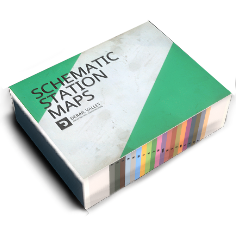Body Damage/es: Difference between revisions
Updating to match new version of source page |
Updating to match new version of source page |
||
| Line 29: | Line 29: | ||
<div lang="en" dir="ltr" class="mw-content-ltr"> | <div lang="en" dir="ltr" class="mw-content-ltr"> | ||
Body damage can be | Body damage can be inflicted manually in {{pll|Sandbox|sandbox mode}}, using the {{pll|Comms Radio Cheat Modes|comms radio damage mode}}. | ||
</div> | </div> | ||
[[Category:Servicing|4]] | [[Category:Servicing|4]] | ||
Latest revision as of 21:34, 17 March 2025
La carrocería de un vehículo ferroviario puede dañarse por colisiones, maniobras bruscas, fallos graves del sistema de propulsión que hacen que las piezas salgan volando, incendios e incluso explosiones. El daño a la carrocería puede provocar fallos en los sistemas eléctricos que hagan que las luces, los limpiaparabrisas y otras características eléctricas no funcionen. Sin embargo, no afecta la capacidad de movimiento de un vehículo.
Most common situations in which collision damage occurs is due to derailing, distracted shunting, badly set up switches and wheelslide. Body damage can also be caused by various powertrain failures that cause parts to fly apart, as well as fire and even explosions.
Damage to a vehicle's body may result in failure of various accessories, such as windows, lights and compressors. It doesn't otherwise affect the moving capability of a vehicle, however.
To ensure safe contact between vehicles, it is recommended to not come in contact at more than 5 km/h. To help anticipate contact better, there are proximity sensor gadgets.
Body damage of a vehicle is displayed on its ID plate.
Damaged vehicle bodies can be serviced.
Cars and cargo can be damaged from collisions too.
Body damage can be inflicted manually in sandbox mode, using the comms radio damage mode.
